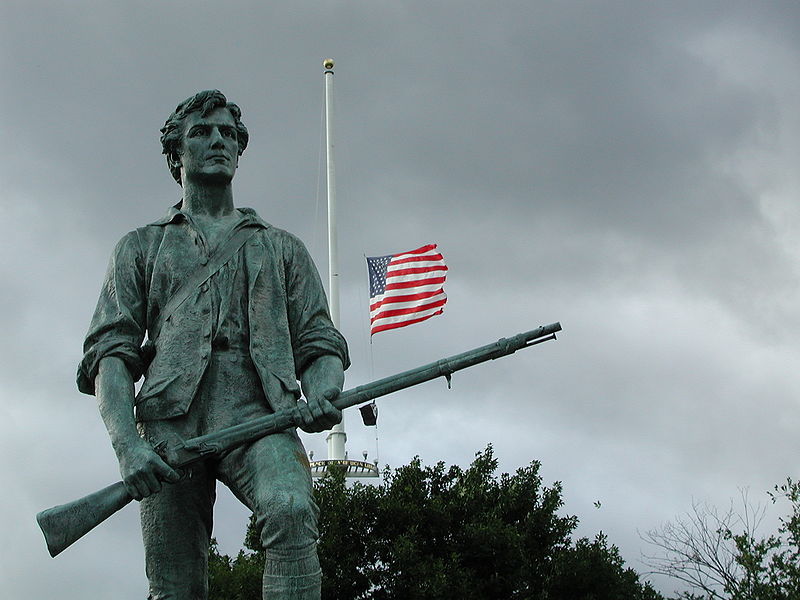America was born in a blaze of guns and righteousness. Everything we’re told to remember about its conception focuses on the bloody battle for liberty. And now, almost 250 years later, we’re still caught in a culture of violence and gun glorification.
Discussions about gun control resurged after the Las Vegas shooting Sunday, but historical trends suggest we won’t see much change. In the wake of mass shootings from 1990 to 2014, the number of passed laws relaxing gun restrictions increased 75 percent in states with a Republican legislature, according to a Harvard study; in states with Democrat-controlled legislature, there was no significant change in gun laws.
On a global scale, this is atypical. Many countries immediately scaled up gun control with bipartisan support after deadly shootings, including the U.K., Norway and Canada. Of recent note is Australia, which recently ended its second firearm amnesty. Australia instated a gun buyback program in 1996 after experiencing its own deadliest mass shooting that same year and successfully halved the number of household guns.
The country is now offering to help the U.S. with its own policy and need for reform, offering “experience” in effecting change. But the U.S. has a unique attachment to guns incomparable to the rest of the world, and what’s worked elsewhere can’t be directly applied here.
For one, the U.S. has a massive population and an equally massive number of guns. In a country with a population of nearly 330 million, we have more than 300 million guns we know about — that’s almost half the guns in the world. We’re a country with more firearms than adults, and it’s part of individual identity.
The presence of guns doesn’t seem so big in the suburbs, but when you’re in the rural South, they’re a social tool. They’re used for play and sport, and they’re a way to connect with the people around you. Guns are a special interest in the same vein as postage stamps.
They’re also connected with traditional American ideals, such as rugged masculinity and self-sufficiency. Man with gun is a cultural icon; he’s the dashing hero of our action movies, the most competent science fiction protagonist, the stunning survivalist throughout American literature, the hip-hop icon we’re meant to identify with.
When a female character wields a gun, she also becomes an archetype. It’s a cool and powerful move to take up a firearm because American media, both traditional and modern, makes it glamorous. We’re taught that these are ideal figures, that the gun is not just a weapon, but a defining characteristic, much like cigarettes.
These narratives are also intensely one-sided because they’re fake. While media isn’t often trying to push a pro-gun agenda, it’s not concerned with talking about what’s responsible and what’s not. When the renegade packing heat is the primary exposure people have to gun culture, or when they see this coupled with their firearm-saturated community, it reinforces the place these weapons have in the cultural consciousness.
Other countries have significantly fewer guns per capita, and they’re associated primarily with law enforcement or criminal activity. In Japan, violent crime rates are incredibly low, and there is no need for the gun to be a symbol of power; thus, almost no one has one, and there is little demand for them. It doesn’t feature prominently as a status symbol in Japanese media, although you can see more presence in recent decades — possibly because of the influence of American culture.
The U.S. doesn’t just idolize guns; it also values violence. We still feel opposed to the government and still fear the loss of liberty, so much so that we prepare to physically clash. The nation holds onto the right to bear arms centuries after the relevant conflict ended because it feels threatened, and the American tradition — ever since there was an America — is to take action.
Our police are militant and evermore prone to making fatal mistakes with their weapons, and our government has prioritized defense above everything else. We are externally at war and internally divided; the power to kill has never in the American history strayed from association with agency.
When we talk about gun reform, we can’t ignore the nation’s subconscious. Our culture has always been characterized by gun violence, and it keeps us from moving forward with the rest of the world.



